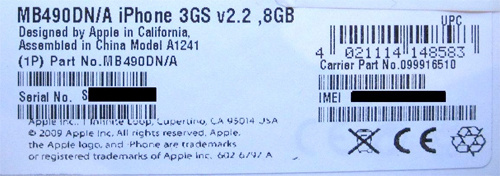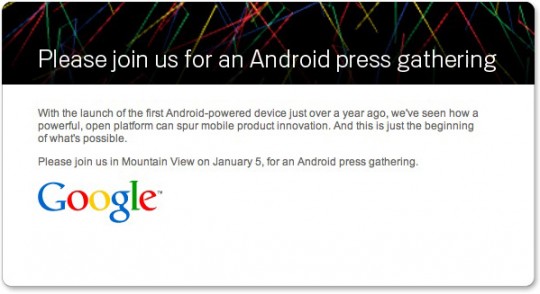
Gadget lovers are waiting with bated breath for the much-anticipated unveiling of the Apple tablet, but don't expect it to take the world by storm the way the iPod and iPhone did.
"There will be a strong interest in it, but it won't be the wave of the future," said James Brehm, analyst at Frost & Sullivan.
Tablet computers are hardly a new concept. In fact, Apple already brought a tablet device to the market in 1993 in the form of the Newton MessagePad. Despite a ton of hype, Apple only sold a few hundred thousand Newtons in the five short years it was on the market.
Other tablet-like devices have also fizzled. The Compaq iPAQ and the Palm Pilot were quickly replaced by smart phones. Consumers can find some modern-day "tablets" in the form of notebook computers with swiveling monitors, but they're clunky, expensive and haven't taken off.
The problem with handheld tablets is that they're middle-of-the-road devices. They have better functionality than smaller gadgets but don't have enough functionality to replace your PC.
Though Apple hasn't released any details about its tablet, analysts who have been briefed on the device say it will run apps like the iPhone and iPod Touch do, but the tablet will be better suited for watching movies and reading. According to a New York Times report, Apple will unveil a tablet on Jan. 26.
"The Apple tablet will have a beautiful user interface, it will have a pleasing aesthetic and will be marketed well," said Chris Collins, senior consumer research analyst at Yankee Group. "But at the end of the day, we're still talking about a smart phone with a bigger screen."
Collins anticipates the tablet will initially take off with lots of excitement, but ultimately he expects it will help accelerate innovation in smaller gadgets, like smartphones, and bring down prices for PCs.
Such was the fate of netbooks. Shipments of the mini, ultra-portable notebook computers soared in 2008 and earlier this year. However, sales have cooled off as full-sized notebook prices dropped, and smart phone performance grew, according to John Jacobs, NPD Group's director of notebook market research. As a result, NPD expects netbook shipments to grow just 19% in 2010.
"Netbooks won the battle but lost the war," said Collins. "Eventually, people either went to a smartphone or a notebook. Tablets will also generate a lot of interest initially, but they will ultimately suffer a similar fate."
Too pricey?
Tablet technology doesn't come cheap. Creating screens that allow users to write on them is a costly endeavor, and swivel-monitor notebooks tend to run several hundred dollars more than non-tablet peers.
Apple will likely need to charge around $800 for the device, analysts say, which could relegate the tablet to "niche" status. That $800 price point could be too rich for some and others may opt to spend just a little more for a full-function laptop computer.
Brehm and Collins argued that the there will be some compelling uses for the tablet, including note-taking for students or examining electronic health records for physicians. Apple fans will also bite because, well, it's an Apple product, and it's bound to be really cool.
"The market will be there, but this will definitely be more of a niche product," said Brehm, who was Gateway's tablet product manager a decade ago.
Apple may pull it off
The tablet will have to offer more than the iPhone or iPod Touch to be successful, say analysts.
"They have to trump themselves," said Laura DiDio, principal analyst at ITIC. "That will be difficult, but the tablet shouldn't only be an iPhone with a bigger screen. It's going to have to bring something new to the table to be successful."
DiDio said the tablet will have a 10-inch to 12-inch screen and a high-end graphics card that will enable stunning resolution -- even more so than the iPhone and iPod Touch. She said the device will come in several different models that offer varieties of Internet connections, such as Wi-Fi or 3G, perhaps through a contract with AT&T. A Web cam will also be available for video conferencing.
Is that enough to change the gadget game? Maybe. Analysts counted out Apple before the iPod changed the music player and before the iPhone re-imagined the smartphone.
Likewise, it may be too soon to count out the long-awaited tablet. Even tablet detractors know better than to dismiss a Steve Jobs creation too quickly.
"There have been tablets before, and they did not take off," said Brehm. "There had been MP3 players before 2001 too, but we hadn't seen anything like the iPod before."
 12/30/2009 03:58:00 PM
12/30/2009 03:58:00 PM
 kenmouse
, Posted in
Celebrity-Gossip
,
Charlie Sheen
,
Denise Richards
,
0 Comments
kenmouse
, Posted in
Celebrity-Gossip
,
Charlie Sheen
,
Denise Richards
,
0 Comments










 A word of caution to all you hopeful girls out there dying to fill the currently empty position: Being Taiwanese superstar Jay Chou's girlfriend is pretty difficult.
A word of caution to all you hopeful girls out there dying to fill the currently empty position: Being Taiwanese superstar Jay Chou's girlfriend is pretty difficult. After a violent Christmas day encounter in Aspen, Charlie Sheen and Brooke Mueller have been spending time apart. Sources now tell PEOPLE that the separation could be permanent. "Brooke and Charlie still love each other, but they are very different," says the source. "[They] will make their best effort at counseling but divorce is definitely a possibility."
After a violent Christmas day encounter in Aspen, Charlie Sheen and Brooke Mueller have been spending time apart. Sources now tell PEOPLE that the separation could be permanent. "Brooke and Charlie still love each other, but they are very different," says the source. "[They] will make their best effort at counseling but divorce is definitely a possibility."

 Playing a high-ranking general in "Little Big Soldier", a film written and produced by kung fu star Jackie Chan, was a role that Taiwanese singer Wang Lee-hom could not refuse.
Playing a high-ranking general in "Little Big Soldier", a film written and produced by kung fu star Jackie Chan, was a role that Taiwanese singer Wang Lee-hom could not refuse. Microsoft has justly drawn acclaim for the revamp and re-launch of its search engine, Bing. But according to a well-known design blog, there's one serious problem with Bing: It features the worst logo of 2009.
Microsoft has justly drawn acclaim for the revamp and re-launch of its search engine, Bing. But according to a well-known design blog, there's one serious problem with Bing: It features the worst logo of 2009.
 Well known Chinese publisher and blogger Hong Huang has dismissed speculation that Wendi Murdoch, wife of media mogul Rupert Murdoch, is behind the 'black paint incident' targeted at Chinese actress Zhang Ziyi.
Well known Chinese publisher and blogger Hong Huang has dismissed speculation that Wendi Murdoch, wife of media mogul Rupert Murdoch, is behind the 'black paint incident' targeted at Chinese actress Zhang Ziyi. Clandestine couple Bradley Cooper and Renee Zellweger will start the New Year with a new house. The screen stars have only been dating for a few months, but they’ve already forked over $4 million for new digs in the Pacific Palisades section of Los Angeles.
Clandestine couple Bradley Cooper and Renee Zellweger will start the New Year with a new house. The screen stars have only been dating for a few months, but they’ve already forked over $4 million for new digs in the Pacific Palisades section of Los Angeles. When we first broke the news that Nokia would not be exhibiting at Mobile World Congress 2010 this upcoming February, I’m sure there were a lot of shocked people out there. Brace for another shocker, because if rumors are correct it would mean that another big name, LG Electronics, will be following in Nokia’s footsteps (the footsteps leading straight out the door).
When we first broke the news that Nokia would not be exhibiting at Mobile World Congress 2010 this upcoming February, I’m sure there were a lot of shocked people out there. Brace for another shocker, because if rumors are correct it would mean that another big name, LG Electronics, will be following in Nokia’s footsteps (the footsteps leading straight out the door).























 Yesterday, Rainie Yang held a press conference for her new album, announcing that in January of next year she will release her “Ai Mei” single (mini album) in Japan. Her good friend Vivian Hsu congratulated her through a video clip that was recorded earlier. While doing so, she also broke the secret of Rainie’s love and appreciation for V6. Rainie admitted with a blushing face, saying that she loved V6 since she was young; she will record their shows and continuously replay them nonstop. She directly said, “I also once dreamt that I was at their management company as a custodian, helping them clean their offices. If I can see V6 again, I will kneel down and cry.”
Yesterday, Rainie Yang held a press conference for her new album, announcing that in January of next year she will release her “Ai Mei” single (mini album) in Japan. Her good friend Vivian Hsu congratulated her through a video clip that was recorded earlier. While doing so, she also broke the secret of Rainie’s love and appreciation for V6. Rainie admitted with a blushing face, saying that she loved V6 since she was young; she will record their shows and continuously replay them nonstop. She directly said, “I also once dreamt that I was at their management company as a custodian, helping them clean their offices. If I can see V6 again, I will kneel down and cry.” So much for the two Taylors finding love.
So much for the two Taylors finding love. Megan Fox may Hollywood’s hottest “It Girl,” but the brunette stunner is also the silver screen’s worst actress.
Megan Fox may Hollywood’s hottest “It Girl,” but the brunette stunner is also the silver screen’s worst actress. Scottish songbird Susan Boyle has stormed the music scene in Australia after her debut album earned the highest seven-day sales ever seen in the country upon its release there last week.
Scottish songbird Susan Boyle has stormed the music scene in Australia after her debut album earned the highest seven-day sales ever seen in the country upon its release there last week. Interesting. It looks like Google won’t be entirely shaking up any wireless industries at the present time, but it will be pushing forward with its own “flagship” device by selling it directly to consumers. While our connect’s internal T-Mobile photo is rather small, we’ve broken down the text for you:
Interesting. It looks like Google won’t be entirely shaking up any wireless industries at the present time, but it will be pushing forward with its own “flagship” device by selling it directly to consumers. While our connect’s internal T-Mobile photo is rather small, we’ve broken down the text for you: Gadget lovers are waiting with bated breath for the much-anticipated unveiling of the Apple tablet, but don't expect it to take the world by storm the way the iPod and iPhone did.
Gadget lovers are waiting with bated breath for the much-anticipated unveiling of the Apple tablet, but don't expect it to take the world by storm the way the iPod and iPhone did. RIHANNA’s favorite artist of 2009 is Lady Gaga.
RIHANNA’s favorite artist of 2009 is Lady Gaga. ROBERT Pattinson has been seen strolling around South-West London with his sister Lizzy.
ROBERT Pattinson has been seen strolling around South-West London with his sister Lizzy. New data shows that the iPhone may finally have a true competitor in the Android operating system with user profiles appearing very much alike.
New data shows that the iPhone may finally have a true competitor in the Android operating system with user profiles appearing very much alike. After discovering that Apple had registered iSlate.com in late 2006 (we dug a little deeper and found trademarks had been filed for ‘ISLATE’ in both the United States and Europe by a company that was most likely a dummy corporation set up by Apple), MacRumors has now discovered another possible name for the upcoming Apple tablet.
After discovering that Apple had registered iSlate.com in late 2006 (we dug a little deeper and found trademarks had been filed for ‘ISLATE’ in both the United States and Europe by a company that was most likely a dummy corporation set up by Apple), MacRumors has now discovered another possible name for the upcoming Apple tablet.